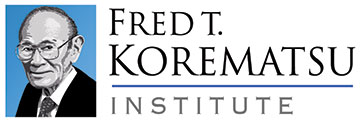Open Letter on Censorship
April 21, 2023
Scholastic Inc. Education
PO BOX: 639852
Cincinnati, OH 45263- 9852
An Open Letter on Censorship: We Need to Address Racism Head On
Shame on You, Scholastic Corporation.
It has come to my attention that Maggie Tokuda-Hall’s Love in the Library, a beautiful story, based on real events, the story of how her grandparents fell in love in Minidoka Incarceration Camp during WWII has been censored. It was not censored because of the horrors of war, and it was not censored because of the horrific treatment of American citizens. It was censored by the Scholastic Corporation, an American publishing company and distributor of education books, materials, and media for children, teachers, parents, and educational institutions, with the threat of retraction for the use of the word “racism” in the author’s notes. Minidoka was a Japanese American incarceration camp. Over 125,000 people were yanked from their homes and communities and incarcerated in camps just like Minidoka because they looked like the enemy. What should we call that?
Banning books is wrong. Censoring ideas is wrong. Censoring history is wrong. We need to talk about racism. First off, the word “racism” is not offensive. Hate speech, racial slurs, and intolerance are offensive. According to Oxford Languages, racism is a word, simply put, that describes “prejudice, discrimination, or antagonism by an individual, community, or institution against a person or people on the basis of their membership in a particular racial or ethnic group, typically one that is a minority ormarginalized.”* It is real. It stalks conversations and playgrounds, and offices. We do not need euphemisms. We do not need to temper stories that make some of us temporarily uncomfortable. We need to talk about the Chinese Exclusion Act of 1882. We need to talk about Islamophobia. We need to talk about George Floyd. We need to talk about the past and present. And we need to address racism head-on for our collective future.
Unfortunately, racism is embedded into the fabric of our country, not just in the distant past, but also in the present. We have seen it in the treatment of indigenous tribal communities, the treatment of Americans of Japanese descent during WWII, the long arm of slavery, discrimination, and redlining, and the unnecessary struggles of first-generation immigrants. This is why I support an ethnic studies curriculum in K-12 schools. If we don’t learn from the darkest moments of our history, we are doomed to repeat them. If we do not share the good and the bad of that history with our youth, we end up with adults who believe ignorant stereotypes or discriminate against an accent or immediately react with fear, anger, or brutality to the color of someone’s skin.
I am a member of the National Council for the Social Studies (NCSS), a California Education Ambassador, and the founder and Executive Director of the Fred T. Korematsu Institute. The mission of the Korematsu Institute is educating to advance racial equity, social justice, and human rights for all. In our work, we bridge the Fred Korematsu story with various topics in history, including other civil rights heroes and movements, World War II, the Constitution, global environmental and human rights, and Asian American history. We make connections to present-day racism, civil rights discrimination, and political scapegoating, such as mass incarceration, anti-immigrant sentiment, and xenophobia. And as a national organization, the Korematsu Institute advocates for ethnic studies in all 50 states and promotes public civic engagement, especially concerning voting, education, and racism, at this critical time for our country.
Censorship is the start of a slippery slope towards banning uncomfortable history and the eventual erasure of these important stories. So, we must ask ourselves how we deal with hard history. How do we learn from and share ALL of our stories? And how do we prevent the prejudice, discrimination, and even violence that results from these stories not being told? People can be afraid of what they don’t know and if they don’t know about other people’s lives, culture, heroes, and contributions to our shared American narrative, we are pulled apart from one another. It becomes us versus them. One group becomes “the other.” This is why we must talk about racism. This is why we cannot censor authors like Maggie Tokuda-Hall or journalists or teachers who call out racism when they see it. We all need to see it.
While their eventual apology is noted, when it comes to providing educational materials to the public, we demand the Scholastic Corporation and all publishing companies deal honestly with tough subjects. Do not water down or censor information that makes us uncomfortable. And do not censor authors’ work. It should not take an author’s courage, like Maggie Tokuda-Hall, to ensure publishers are accountable, ethically responsible, and work under a policy of inclusive and honest history. This is why education is so important. Because for all of our subtle differences in clothing, worship, or traditional holiday meals, in a nation of 330 million people, at our core, we are all the same. This is about All of Us.
Sincerely,
Dr. Karen Korematsu,
Founder & Executive Director
